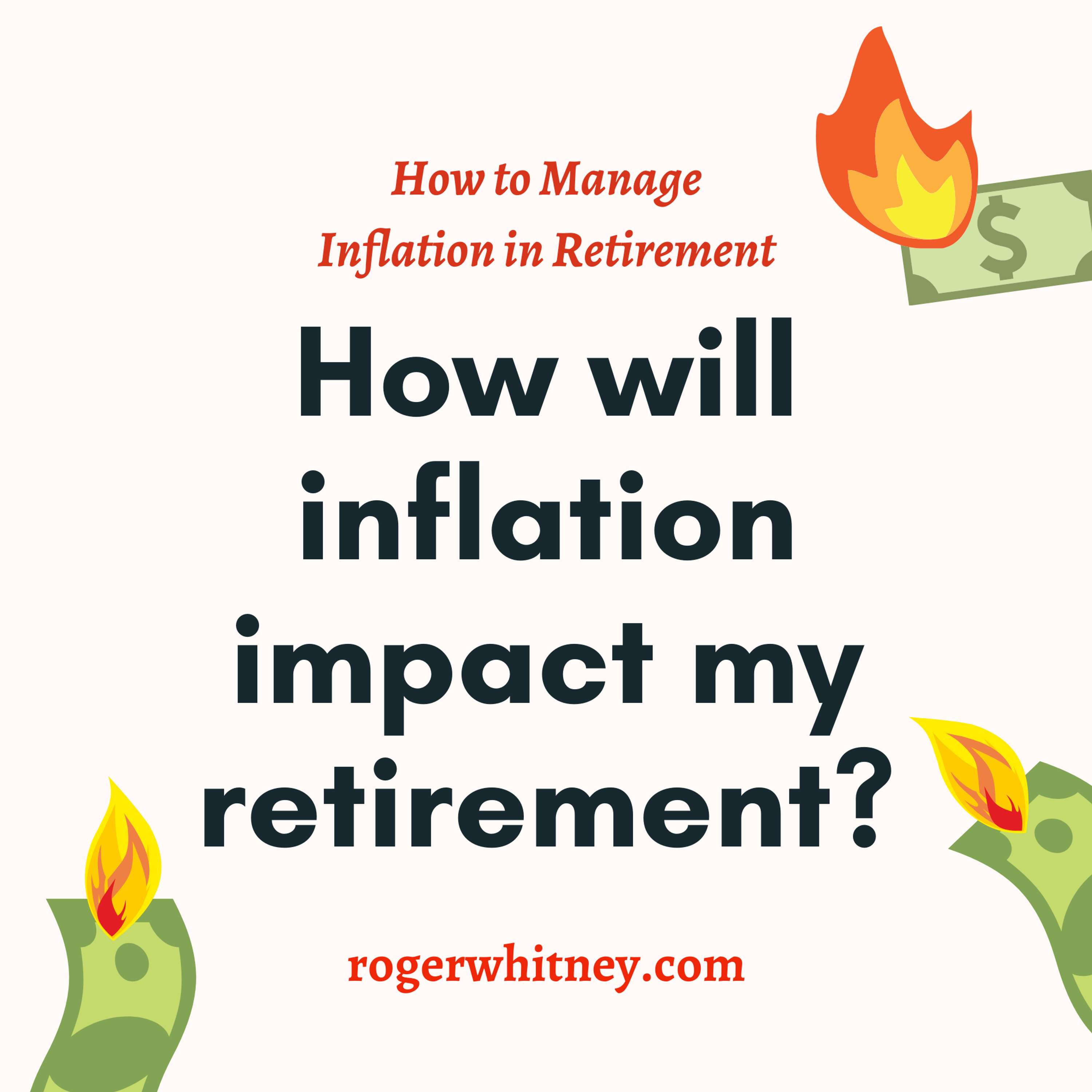
How Will Inflation Impact My Retirement?

Retirement Answer Man
Shownotes Transcript
Inflation is on everyone’s mind these days. If you have been wondering how inflation will affect your retirement, you’ve come to the right place.
This is the 2nd episode in a 4 part series on inflation. Last week) we defined inflation, today, we’re discussing the impact of inflation on retirement, next week we get strategic, and in the final episode, we’ll get tactical and answer your questions on inflation.
Press play to learn what you need to know about the effects of inflation on your retirement. Just choose a number
Inflation is nothing new. It has been affecting us over the course of our entire lives. This is important to remember when planning retirement so that you don’t overthink how you plan for inflation as you build your retirement plan of record.
When building your retirement planning model, you’ll need to assume some number to plan for inflation. This number can be chosen based on history or another method. You don’t need to worry too much about where the number comes from as long as you’ve done a bit of research to get it. The most important thing to remember when choosing a number to assume for inflation is to leave it alone. It’s important to stay agile
You’ll be consistently iterating and tweaking your retirement plan of record as your lifestyle changes from year to year. Even though inflation rates will fluctuate over the course of your retirement, leave your assumed inflation estimate alone.
You won’t get any more accuracy from your model by tinkering with this number. Instead, you’ll end up tilting the numbers one way or another based on your proximity bias. Iterate based on the reality of your lifestyle rather than some projected assumption. Let your spending habits change based on your life choices. How does inflation impact your retirement?
The best way to understand how inflation can impact someone over time is to crunch the numbers.
If you spend $9,000 per month today and assume a 3% inflation rate, in 15 years your standard of living will decrease by 36%. If you change the inflation rate to 7%, the standard of living will worsen by 64%.
Although these numbers can seem scary, you will have a bit of optionality in the way you spend your money. If inflation is high, you may choose to scale back your spending in many areas. Areas where you can’t scale back
There are a couple of areas in life where you won’t be able to scale back spending. A healthcare event is not a choice and will need to be cared for whether you are ready or not.
Unfortunately, due to the healthcare renaissance in medical technology, inflation in the medical field has risen by 3 times the average of other goods and services. Healthcare and long-term care are two areas that have higher than average inflation and you have little control over your need for them.
Even though inflation will cause prices to rise, you will have a safety feature built into your retirement by way of social capital. Social Security has a cost of living adjustment built into the system based on CPI-W. Listen in to hear how these adjustments in addition to your human capital can help you combat inflation in your retirement. OUTLINE OF THIS EPISODE OF THE RETIREMENT ANSWER MAN PRACTICAL PLANNING SEGMENT
- [3:30] Be careful with your assumptions
- [10:01] How does inflation impact your retirement?
- [21:48] How stocks and bonds react to inflation
LISTENER QUESTIONS WITH TANYA NICHOLS
- [28:40] How Frank can decide if he can continue with his early retirement
- [35:20] Where can someone with modest means go for retirement advice?
- [40:02] What is the role of bond funds in a retirement portfolio with a low-interest rate environment?
- [47:28] Clarification on signature requirements for IRAs
TODAY’S SMART SPRINT SEGMENT
- [51:17] Review your inflation assumptions
Resources Mentioned In This Episode Episode 405 - Don’t Let Perfect Be the Enemy of Good)Lutheran Social Services Financial Services)XYPN)Align Financial)BOOK - So Good They Can’t Ignore You) by Cal NewportBOOK - The Good Entrepreneur) by Nick KennedyRock Retirement Club)Roger’s YouTube Channel - Roger That)BOOK - *Rock Retirement *) by Roger WhitneyWork with Roger)Roger’s Retirement Learning Center)